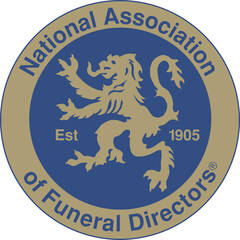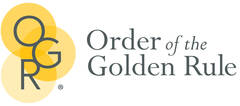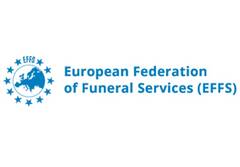FAQs (Frequently Asked Questions)
Frequently asked questions on what to do when someone dies
Place of death
-
What to do if someone dies at home during the day?
Regardless of where the person dies, if it is during the day, a medical professional will need to verify the death. This can be arranged by contacting the person’s usual doctor, typically their GP, who will issue a Medical Certificate of Cause of Death, which you will need to register the death. The doctor’s surgery should contact you when the certificate is ready for collection.
If someone has died at home unexpectedly, the emergency services must be involved. They will contact the local coroner who may wish to investigate the cause of death.
The coroner will arrange for a local funeral director to collect the person who has died and to bring them into their care. You do not need to use the services of this funeral director, even if the person who has died has been taken into their funeral home following the coroner’s investigation. The choice is entirely your own and if a different funeral director is then chosen, they will make the necessary arrangements.
The coroner will issue a Medical Certificate of Cause of Death when their investigation is complete. In the meantime, you can start the funeral arrangements with your chosen funeral director.
-
What to do if someone dies at home at night?
A medical professional will need to attend to verify the death. If the person has died at home during the night or when the person’s usual doctor isn’t available (for example during out of hours), you will need to call the NHS helpline 111 and an on-call doctor or senior nurse can verify the death for you. They will issue a Medical Certificate of Cause of Death which you will need to register the death.
-
What happens when someone dies in hospital?
When someone dies in hospital and the death is expected, the doctor will issue the Medical Certificate of Cause of Death which is needed to register the death.
If the death is unexpected, the hospital may need to conduct a post-mortem examination to verify the cause of death. If they are unable to verify the cause of death, the doctor will contact the coroner's office who will investigate further.
The coroner will issue a Medical Certificate of Cause of Death when their investigation is complete. In the meantime, you can start the funeral arrangements with your chosen funeral director.
-
What to do when someone dies in a care home?
If someone dies in a care home, the person’s usual doctor will be contacted to verify the death. The doctor will issue a Medical Certificate of Cause of Death, which you will need to register the death. The doctor’s surgery should contact you when the certificate is ready for collection.
If a person dies unexpectedly in a care home, the emergency services will be involved. They will contact the local coroner to investigate the cause of death.
The coroner will arrange for a local funeral director to collect the person who has died to bring them into their care. You do not need to use the services of this funeral director, even if the person who has died has been taken into their funeral home following the coroner’s investigation.
The coroner will issue a Medical Certificate of Cause of Death when their investigation is complete. In the meantime, you can start the funeral arrangements with your chosen funeral director.
Post-mortems and inquests
-
What happens at a coroner’s inquest?
Being told that there needs to be an inquest into the death of your loved one is a distressing and confusing time. You will likely have lots of questions and also want to know what to expect from the inquest process.
Inquests are usually held when a death certificate cannot be issued until an investigation has been carried out, to establish the facts needed for the certificate to be complete. The person who completes the investigation is called a Coroner.
An inquest will be held if there is reason to suspect that the cause of death is:
- Unknown
- Violent or unnatural, or
- Occurred whilst the person was in custody, such as in prison, police cell or psychiatric hospital
The Coroner will need to establish throughout their investigations who the person was, when they died, where they were and how they died.
During an inquest, there are parties called Properly Invested Persons or PIPs who take an active role in the investigation. They are often family members of the person who died, representatives of the establishment where the person died or those who were directly involved in the care provided to the person who died. It is normal practice for the PIPs to be legally represented.
Generally inquests are not heard in front of a jury, but there are instances where this is mandatory. Such as if:
- The death occurred whilst the person was in the custody of the state,
- The death was violent, unnatural or unknown,
- The death resulted from the act of a police officer or member of a service police force, or
- The death was caused by an accident, poisoning or disease
Sometimes a pre-inquest review may need to be held, which is when the Coroner holds a hearing before the inquest with attendance from all the PIPs. The purpose is to determine any issues before the inquest which will have an impact on the hearing being held.
Typically, an inquest is held at a Coroner’s Court, which tends to look like an ordinary courtroom inside. The Coroner will be sat at the front with benches facing him or her where the legal representatives will be sat. If a jury is involved, they will usually be sat at one side with a clear view of the witness box. Family members of the person who died will normally sit behind the legal representative benches.
During the inquest, the Coroner and Jury if in attendance, will hear evidence from live representatives who attend at the court and any witness statements from those witnesses who are not present. When a live witness gives evidence, the Coroner will begin by asking them questions. Then legal representatives for the PIPs are permitted to answer relevant questions to aid the Coroner’s inquiry. If a jury is present, they are also permitted to ask questions of the witness.
Once the Coroner has heard from all the witnesses, they are then able to call upon witnesses to address any concerns that may have arisen, presenting cause for concern. For example, to ascertain if there is a risk of any further deaths occurring at the same establishment or under a similar circumstance.
A conclusion must be met at the end of an inquest. If a Jury is present, the Coroner will hear from the legal representatives as to what conclusions should be left for the Jury to consider. If there is no Jury, the PIPs will address the Coroner on what conclusion would be appropriate for the Coroner to reach in their investigation.
Possible conclusions could be one of the following:
- Accident or misadventure
- Alcohol or drug-related
- Industrial disease
- Lawful or unlawful killing
- Natural causes
- Open conclusion
- Road traffic collision
- Stillbirth
- Suicide
It is also possible for the Coroner or Jury to return a narrative conclusion, whereby a paragraph is produced that factually describes the circumstances of the death.
The inquest ends with the Coroner or Jury completing a Record of Inquest and reading out their conclusions.
Timelines
-
How long after death is the funeral?
The average funeral is held between 13 to 16 days following the death, this timeframe takes into account all of the factors involved in organising a funeral, from obtaining official documentation through to scheduling time for officials and facilities.
It is common practice for some religious funerals to take place within a certain timeframe, where this is requested we will do our utmost to help with your arrangements.
We will work with you to ensure you have the funeral service suited to your needs and you should never feel under any pressure to rush through your arrangements.
-
Who needs to be informed about the death and how quickly?
Immediately after the death it can seem that you are having to repeat what is incredibly sensitive information, at a time of extreme heightened emotions, endlessly to a wide variety of people. It is helpful to make lists, group individuals and organisations into different categories and enlist the help of family and close friends.
- Family: Use trusted family contacts to inform other family members.
- Friends: Do the same with friends and ask them to make a note of who has been contacted and when. We would recommend that you use our memorial pages service available on our website where we can upload the funeral details for you instead of using social media. You can then refer family, friends and any other close contacts to this page.
- Work: If you do not have contact details of a close colleague or line manager, call and ask to speak to the Human Resources or Personnel department. A good employer will arrange a liaison person for you, so you can let them know if work colleagues will be welcome at the funeral and also any support the employer can offer.
- Department for Work & Pensions and other central and local government agencies: If you were able to use Tell Us Once when you registered the death, this will have been done for you. Otherwise you will need to inform them individually. The most important are the DWP and any local government paid benefits, so that payments to the person who died are stopped immediately and you do not later have to repay money from the estate.
- Medical appointments: If someone has died in hospital, all appointments for that hospital should be canceled and the GP informed of the death. The NHS does not have a single notification system, so you will need to inform any other hospital where there may be appointments arranged, especially if patient transport has been booked.
- Banks and other financial organisations: Although you may not want to have to think about money at this difficult time, it is important to ensure that bank accounts are protected from fraud. Joint accounts are very rarely frozen and immediately become the property of the named joint account holder. Accounts just in the name of the person who died (sole name) will be frozen once the bank has been notified of the death. Someone who is an authorised signatory on an account should not carry out any transactions after the death, as the permission for them to do so ended with the death of the account holder. Aim to notify banks of the death within a week. Completing their other forms can usually wait a little longer and may have to become part of the probate process.
- Mail suppression: Many registrars of death, hospitals and funeral directors offer the opportunity to complete a form that helps to suppress direct mail, otherwise known as junk mail. Several companies provide this and it is always a free service to the bereaved person. It is never one hundred percent effective but it can significantly reduce the amount of unwanted mail that comes and also helps to prevent identity theft.
Finances, administration and the estate
-
How do I deal with the deceased person's estate?
The first step is to ascertain whether a will has been made. It may be being held by the family solicitor or bank, or may be filed amongst personal affairs at their place of residence.
If there is a will:
Depending on the circumstances, before the estate can be realised, assets distributed to any beneficiaries and any debts repaid, a Grant of Probate or Letters of Administration may be required. The will names the individuals who will act as Executors.
If there is no will:
The next of kin or a close family member must apply to the Probate Registry for Letters of Administration, which will appoint them as Administrators of the Estate. If you do not have a family solicitor to advise you, you may want to use a specialist probate solicitor.
-
What should I do with the deceased person's passport?
If the deceased person had a passport, this should be returned to the passport office.
-
What happens if I can’t afford a funeral?
If you are concerned that there may not be enough money in the estate to pay for the funeral and you yourself also cannot afford it, do come and talk to us about this. There are public health services which may be available to you.
-
How to address money worries following the death of a loved one?
Processing the death of a loved one is an overwhelming time, not only are you coming to terms with their death, there are the funeral arrangements to be made and other administrative tasks to address such as organising and managing a loved one’s finances. To help you navigate we have produced a guide to help you address money worries following the death of a loved one.
-
What happens to a bank account when someone dies?
When someone dies it is important to contact their bank or building society to ensure that their accounts are protected from fraud. Joint accounts are very rarely frozen and immediately become the property of the named joint account holder. Accounts just in the name of the person who died (sole name) will be frozen once the bank has been notified of the death. Someone who is an authorised signatory on an account should not carry out any transactions after the death, as the permission for them to do so ended with the death of the account holder. Aim to notify banks of the death within a week. Completing their other forms can usually wait a little longer and may have to become part of the probate process.
-
What happens to utility bills when someone dies?
Find out how to settle utility bills, like council tax, gas & electric, after the death of a loved one in our guide on what happens to utility bills when someone dies.
-
How do you make a claim on life insurance?
In this guide, find out how you can make a claim on life insurance as well as information on how to cancel/claim on other insurance policies of a dead loved one.
-
How do you cancel leisure and entertainment accounts following a death?
Find out how to cancel leisure and entertainment accounts, including Netflix, eBay and Xbox Live in our cancelling leisure & entertainment accounts after a death guide..
-
What happens to your social profile following your death?
From announcing the birth of a child to uploading your wedding photo album, social media platforms like Facebook, Twitter and Instagram, have become a place where we share some of our most treasured thoughts and memories. But what happens to these accounts following the death of someone? Find out more aboutwhat happens to your social profile following your death.





